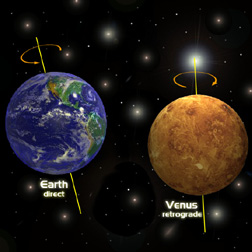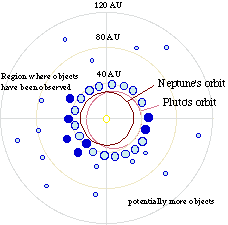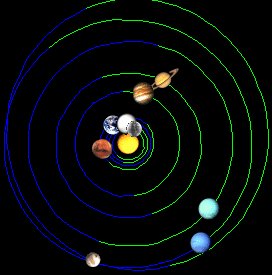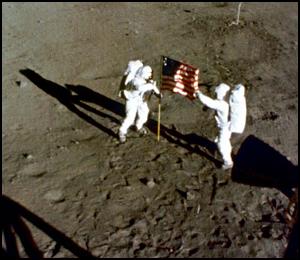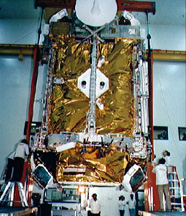 Other Solar System Stuff
Other Solar System Stuff
This page contains answers to questions that have to do with the solar system (excluding the Sun, Earth, and Moon).
They explore man-made satellites, the planets and their moons, comets, asteroids and much more!
Click on a topic to see our "Quickie" questions archive or scroll down for more in-depth answers.
Quickie Other Solar System Stuff
| Mercury | (75 questions) |
| Venus | (98 questions) |
| Mars and Its Moons | (130 questions) |
| Jupiter and Its Moons | (127 questions) |
| Saturn and Its Moons | (94 questions) |
| Uranus and Its Moons | (91 questions) |
| Neptune and Its Moons | (77 questions) |
| Pluto and Its Moon | (100 questions) |
| Asteroids/Meteors/Meteroids/Comets | (29 questions) |
| Other | (418 questions) |
In-depth questions and answers
1)Why is Jupiter called a gas planet?2)Do you think that in another century the human race will be able to travel to Pluto?
3)Does Mars have a core like Earth?
4)Who will be the first person on Mars?
5)How many man-made satellites are currently orbiting the Earth?
6)If natural resources (natural gas, oil, and coal) are formed by extreme pressure acting on material made mainly of carbon, why don't we send large amounts of useless carbon based things to Venus where there is very extreme surface pressure?
7)Do planets in the solar system crash?
8)What would life be like if humans lived on Mars?
9)When a satellite is held in orbit, what is it orbiting relative to? What's so special about the orbit of geosynchronous satellites?
10)How long does it take for Mars to rotate on its axis? What is the period of the Earth? the Moon?
11)What can you tell me about Planet X, the unknown planet?
12)What lifeform could live on Jupiter or Mars?
13)Is a meteor going to crash into Earth in 2028? What can we do?!?
14)What is the gravity assist, swingby approach used with spacecraft?
15)Who discovered all the planets?
16)Why haven't we sent a manned mission to Mars?
17)What are the most commonly used symbols for the planets, the Sun, and the Moon?
18)Is Pluto really a planet?
19)What are the retrograde motions of planets in the sky?
20)How many planets orbit the sun? I was wondering if there is a new planet? Are there any objects that orbit the sun that are not in the same plane as the planets, excluding pluto, comets, asteroids? Do we know any names to any other planets than those in our solar system? If yes, could you give me any examples?
21)How far is the Earth from the Sun, the Moon and all the other planets? How far are all of the planets from the Sun? Do you know of a software that tracks the planets in real-time?
Last modified January 30, 2001 by Jennifer Bergman.





